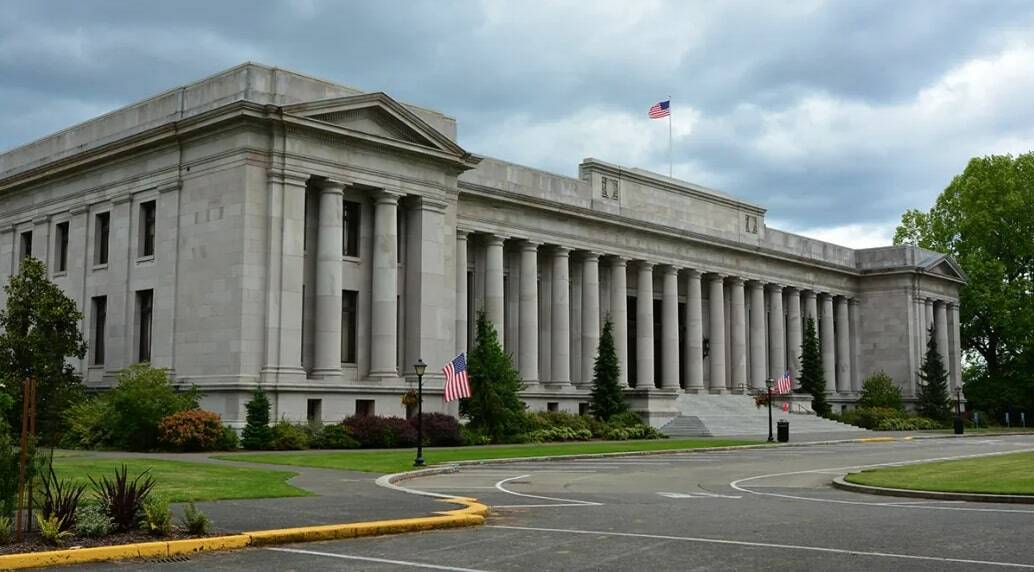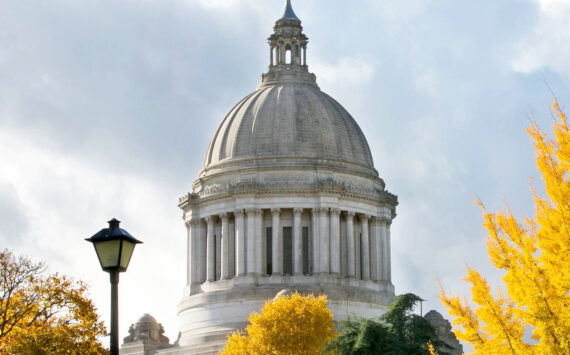Would slashing public defender caseloads in Washington better ensure people accused of crimes, but unable to afford a lawyer, receive counsel as they are constitutionally guaranteed?
The state Supreme Court is considering a request to reduce the number of cases public defense attorneys handle each year by up to two-thirds, and is seeking the public’s opinion on whether it is a good idea.
Justices will hold a hearing next month on changes sought by the Washington State Bar Association and its Council on Public Defense to deal with persistent challenges imperiling the ability to provide timely and effective representation for indigent defendants statewide.
“Public defense in Washington is facing a crisis of attrition and an inability to recruit staff brought about by excessive workloads and poor compensation,” bar association members wrote in the summary of the requested amendments to the Court’s Standards for Indigent Defense Services.
“Attorneys are resigning from the public defense profession in droves because they cannot continue the work given the volume of cases,” they wrote.
The bar association wants the court to increase minimum support staff requirements, revise attorney qualifications to enable lawyers to handle a variety of cases faster, and pare caseloads.
Justices do not face a deadline to act. They enjoy a full slate of options. They can accept, reject or modify any or all of the proposals. Any decision will be handled similar to a court case.
“We hash it out with robust discussion,” Justice Mary Yu said in an email Wednesday. “Our discussion for voting is like case discussions; it is confidential but the outcome is public via a court order. The vote including dissents are published. What is different than cases, is that we can talk with anyone about the proposed rule before we act.”
‘It is about money’
Caseloads have been a topic of conversations the past two years.
Under standards the state Supreme Court adopted in 2012, a full-time public defense attorney or assigned counsel should have no more than 150 felony cases or 300 misdemeanor cases a year.
In January 2022, the Council on Public Defense started a comprehensive review of the existing Standards for Indigent Defense Service.
In the meantime, a year ago, the American Bar Association, the National Center for State Courts and the RAND Justice Policy Program released the National Public Defense Workload Study that concluded public defenders should handle far fewer than 150 felony cases.
Washington’s high court asked the state bar association to weigh in on whether, in light of the report, the current cap needed adjusting.
The association responded in March with a recommendation – now under public review – for new maximums of 47 felony or 120 misdemeanor cases in a year, depending on the severity. The reduction would be phased in over three years.
Under the proposal, crimes are assigned a number of credits based on seriousness and complexity of providing a legal defense. A motor vehicle theft is assigned one credit and a murder seven, for example. That means a lawyer could theoretically be assigned 47 vehicle theft or seven homicide cases in a year before hitting their limit.
Reducing caseloads by roughly 60% will require hiring many attorneys. Local government leaders are concerned they won’t be able to find them and, if they do, will lack money to pay them. And if the Supreme Court sets new minimum staffing levels for paralegal and other support staff, it will compound the challenge.
“A rigid requirement doesn’t make sense for all of the circumstances we have,” Lindsey Hueer, government relations advocate for the Association of Washington Cities said on Wednesday. “It might actually create problems that are not already there.”
It’s a message the organization delivered to leaders of the state bar association In March – before they approved the recommendations they sent to the court.
Washington State Standard is part of States Newsroom, a nonprofit news network supported by grants and a coalition of donors as a 501c(3) public charity. Washington State Standard maintains editorial independence. Contact Editor Bill Lucia for questions: info@washingtonstatestandard.com. Follow Washington State Standard on Facebook and Twitter.






